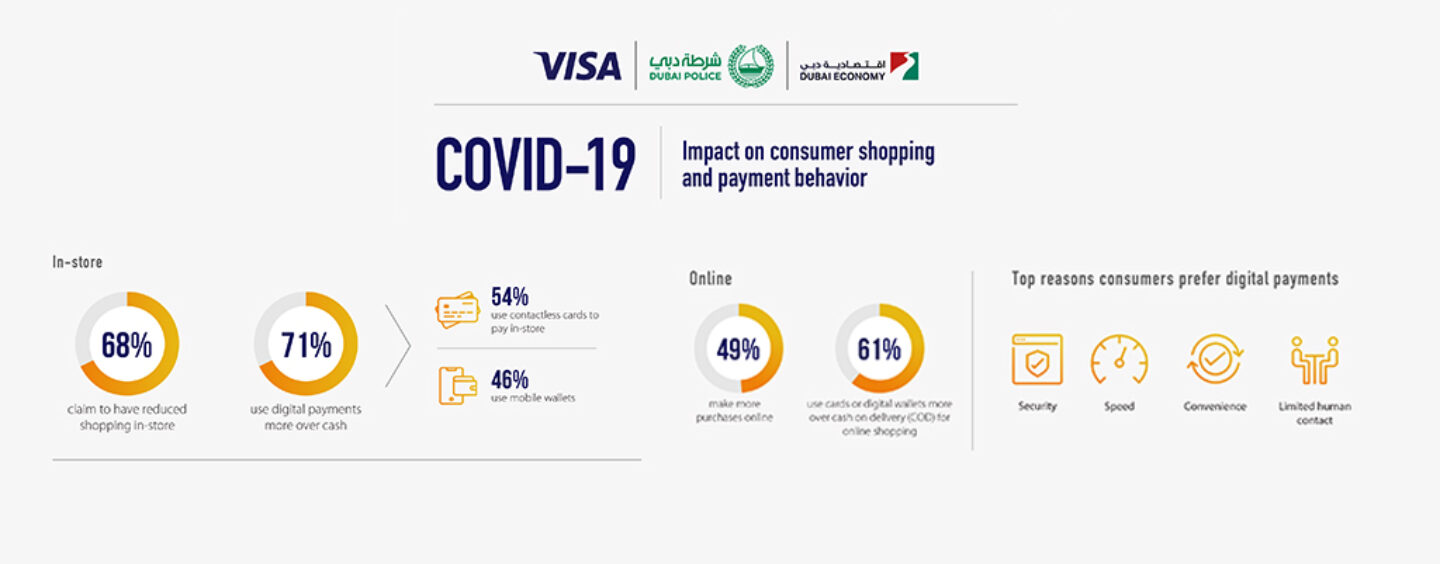Dubai Police, Dubai Economy (DED), and Visa released findings of a survey on the impact of COVID-19 pandemic on payment behavior of consumers in the UAE. The survey also looks at consumers’ general views, preferences and concerns related to digital payments and offers key insights for merchants.
The survey release corresponds with the launch of Visa’s fifth annual “Stay Secure” – this year in partnership with both Dubai Police and DED – social media campaign on Facebook and Instagram to promote safe digital payment practices. This year’s campaign comes at a time when more consumers in the UAE have increased their use of digital payments, and many opting to shop online for the first time to get what they need during this health crisis. The Stay Secure webpage has tips and educational videos, and information on security features of digital payments.
COVID-19: Impact on Consumer Shopping and Payment Behavior
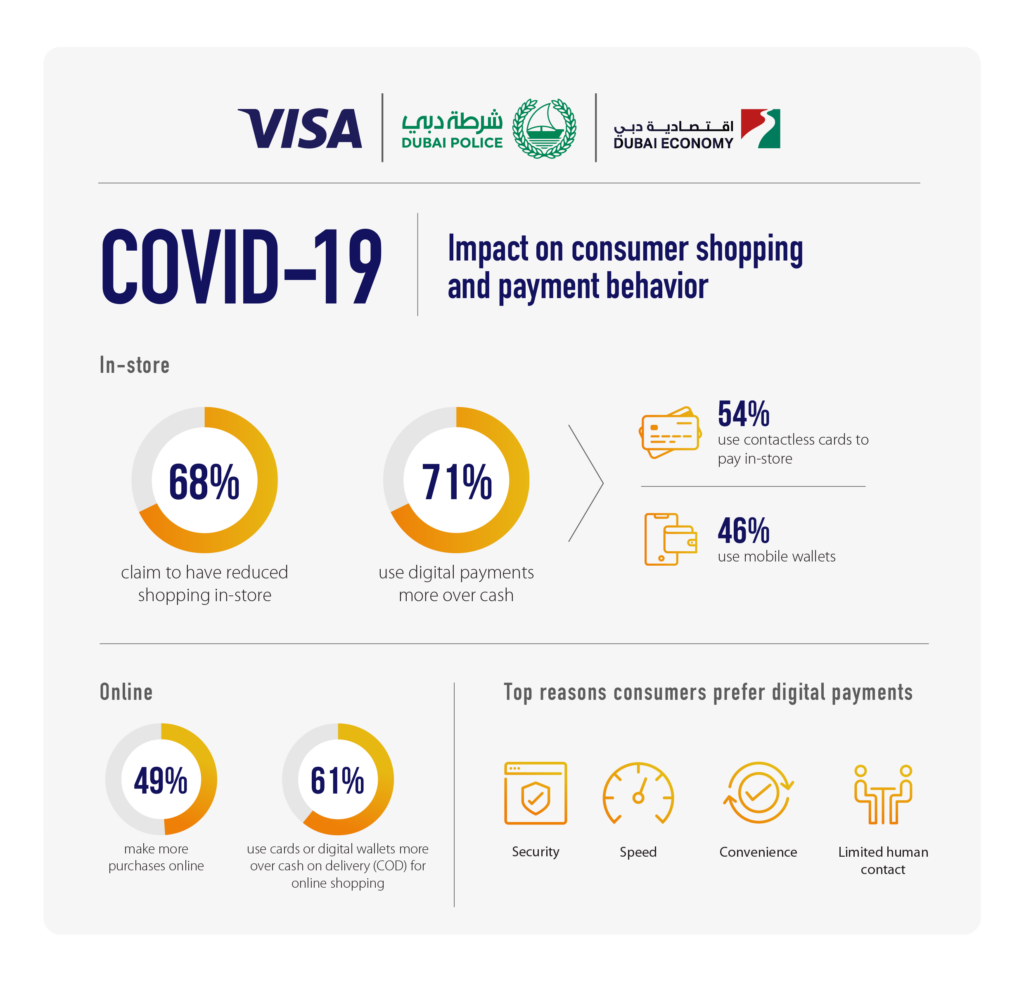
Sixty-eight percent of respondents surveyed in the UAE have reduced shopping in-store since the outbreak of the pandemic and 49% are shopping online more. When they do shop at stores, 71% are using digital payments over cash with the majority using contactless cards (54%) and mobile wallets (46%) more. For respondents shopping more online, the majority (61%) use cards or digital wallets more to pay online over COD. Increased trust in the security of the payment technology, speed, convenience and limited human contact, were the top reasons cited for their increased preference for digital payments.
The New Normal?
These shifts in consumer behavior caused by the pandemic are expected to be the “new normal” as more consumers gain confidence in digital payments. Forty-three percent of consumers surveyed believe they will continue to use contactless payments more in-store post the pandemic and 48% said they will continue to opt more for paying online with card or digital wallet over COD.
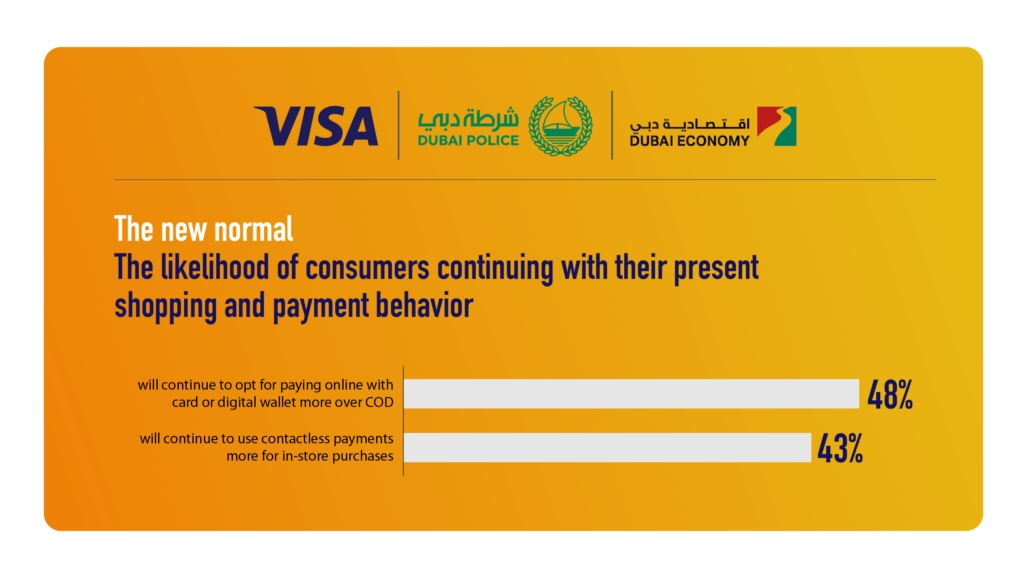
Data Privacy, Biometrics and Mobile Wallets: General Attitudes and Concerns
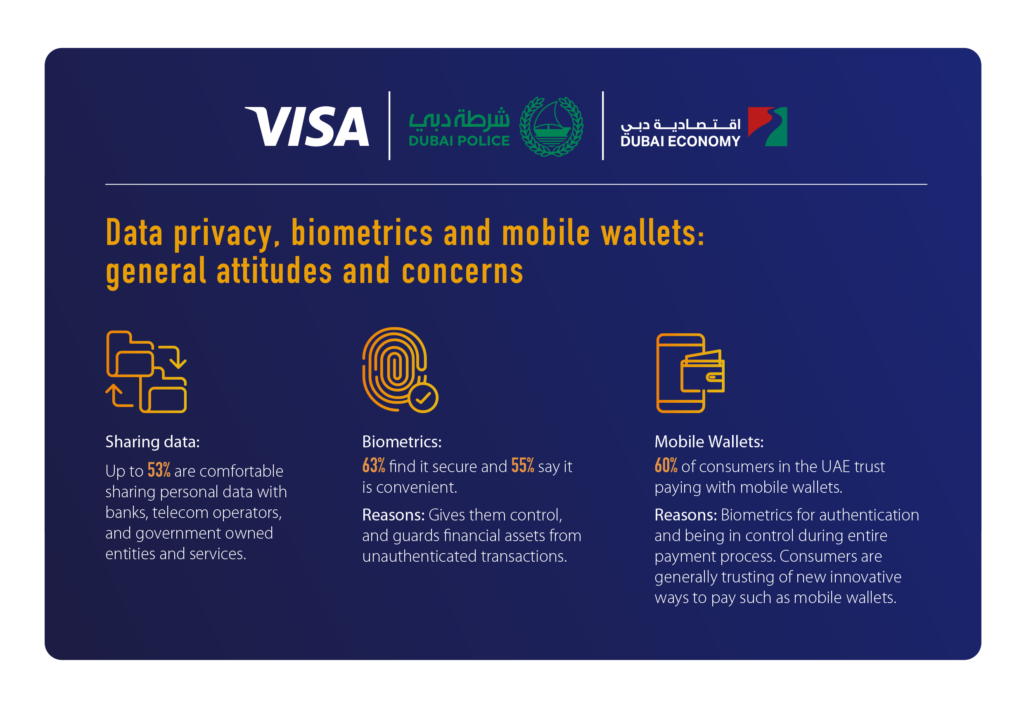
Up to 53% of respondents were comfortable sharing personal data with banks, telecom operators, and government owned entities. Name, demographic data and contact information were cited as data that needs to be protected the most. Sixty-three percent find biometrics secure and for 55% biometrics is convenient to use. Sixty percent trust paying with mobile wallets such as Apple Pay and Samsung Pay. These wallets use Visa’s tokenization technology, which replaces sensitive card data, including the 16-digit card number, with a random number, also known as a “token”, to protect cardholders’ account information when paying in store or online.
Gen Z vs The Rest
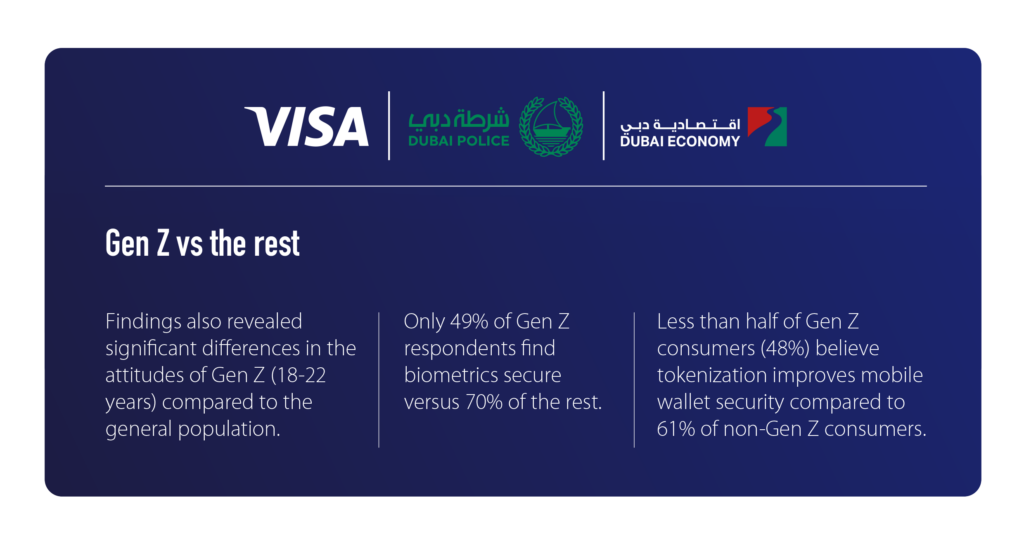
Interestingly, the findings also revealed significant differences in the behaviors of Gen Z (18-22 years) compared to the general population. For example, less than half (49%) of Gen Z respondents find biometrics secure compared to 70% of the rest. With regards to tokenization technology, less than half of Gen Z consumers (48%) believe it improves mobile wallet security compared to 61% of non-Gen Z consumers. With Gen Z entering the job market and their purchasing power expected to increase in the future, insights into their views and behavior are useful for businesses looking to cultivate long-term relationships with them.
Enhancing Online UX and Reducing Cart Abandonment: Key Insights for Merchants
More than half (58%) of UAE consumers surveyed have abandoned their online shopping cart because of authentication delays or failure. Of those who abandoned their carts, 62% try again after some time, 35% purchased from other sites, 34% purchased from a nearby store, and 32% dropped the idea of purchasing the product altogether. For 66% of respondents, an authentication process that doesn’t require them to enter one-time-passcode (OTP) for standard and recurrent transactions would be more convenient; 65% would trust a more seamless process.
Merchants seeking to deliver an enhanced online experience for customers can now adopt Visa Secure (previously known as Verified by Visa), an updated program to help make online payments more secure and seamless. It uses the latest EMV 3-D Secure (3DS) specification, which leverages fraud-detection intelligence working behind the scenes to verify cardholder identity and block unauthorized transactions.
The survey provides further insights on how merchants can build trust in eCommerce sites. The following emerged as the top “confidence builders” by consumers surveyed: offering a wide range of payment options (51%); displaying verified customer reviews (50%); offering payment options in local currency (45%); trust badges/security icons (42%); ease of refunds (42%); and SSL certificate (40%).



